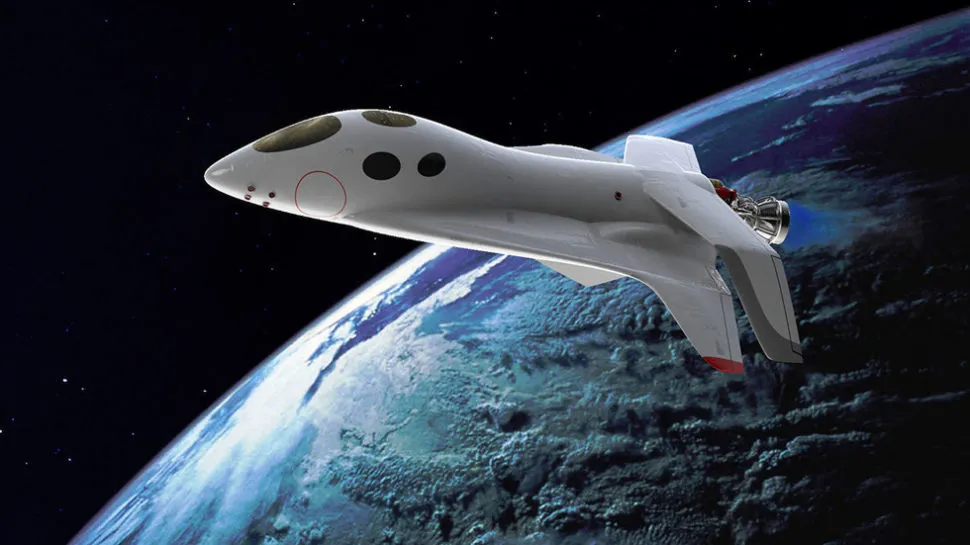Space Tourism
Space tourism represents a groundbreaking development in the travel and leisure industry, offering individuals the opportunity to experience space firsthand. Its importance extends beyond the novelty of space travel; it serves as a catalyst for technological innovation, economic growth, and scientific advancement. By making space more accessible, space tourism stimulates interest and investment in aerospace technologies, driving advancements that can benefit other industries. The development of reusable rockets and improved spacecraft can lead to cost reductions and increased efficiency in space missions. Economically, space tourism has the potential to create new markets and job opportunities, from spacecraft manufacturing and maintenance to spaceport operations and tourism services. Additionally, it fosters international collaboration and scientific research by enabling private and public entities to work together on space exploration projects.

How does space tourism impact international collaboration in space exploration?
Space tourism significantly influences international collaboration in space exploration by fostering partnerships between countries, private companies, and research institutions. As the space tourism industry grows, it necessitates the development of global standards and regulations to ensure safety, compatibility, and fair access to space. This collaborative environment encourages countries to work together on joint ventures, share technological advancements, and align policies related to space travel. For example, space tourism companies often collaborate with international space agencies to utilize established infrastructure, such as launch facilities and space stations. Additionally, the involvement of multiple nations in space tourism can lead to shared research efforts and cooperative missions, accelerating the development of new technologies and enhancing the overall capabilities of the space sector. By bridging national boundaries and creating opportunities for joint initiatives, space tourism helps to build a more unified and cooperative approach to space exploration.
What are the environmental impacts of space tourism, and how can businesses address these concerns ?
The environmental impacts of space tourism include increased greenhouse gas emissions, atmospheric pollution, and potential disruptions to the Earth’s outer atmosphere. Rocket launches contribute to carbon dioxide and other pollutants, which can have short-term and long-term effects on the climate. Additionally, the use of chemical propellants and the potential for space debris pose further environmental risks. To mitigate these concerns, businesses in the space tourism industry can invest in more sustainable technologies, such as reusable rockets, which reduce the frequency of launches and the associated environmental impact. Developing cleaner propulsion systems, such as electric or hybrid engines, can also help lower emissions.
Companies can implement strategies to minimize the production of space debris by ensuring proper disposal of spent rocket stages and adopting space debris tracking systems. Furthermore, engaging in environmental impact assessments and collaborating with regulatory bodies to establish best practices for sustainability are essential steps. By addressing these environmental challenges proactively, space tourism businesses can contribute to a more sustainable future for space exploration.
In what ways can space tourism drive progress in space medicine and health research ?
Space tourism can significantly advance space medicine and health research by providing valuable data and insights into the effects of space travel on the human body. As more individuals participate in space tourism, researchers can study the physiological and psychological impacts of spaceflight, including changes in bone density, muscle atrophy, and radiation exposure. This research is crucial for developing countermeasures to protect astronauts during extended missions and future long-term space habitation. Additionally, space tourism provides a unique opportunity to test and improve medical technologies and health monitoring systems in space environments. For instance, advancements in telemedicine and remote diagnostics, developed for space tourists, can enhance healthcare delivery on Earth. The data collected from space tourism can also inform the design of future space missions and support the development of safer and more effective health protocols. Overall, space tourism acts as a catalyst for innovation in space medicine, benefiting both space travelers and broader healthcare applications.
How does space tourism affect global economic inequality ?
Space tourism has the potential to exacerbate global economic inequality by primarily serving affluent individuals and creating a divide between those who can afford space travel and those who cannot. The high cost of space tourism tickets, combined with the significant investment required for developing and maintaining space infrastructure, means that only a small segment of the global population has access to these experiences. This exclusivity can reinforce existing disparities in wealth and access to technological advancements.
Space tourism can also drive economic growth and technological progress that may eventually benefit a broader audience. As the industry matures and technology advances, costs are likely to decrease, making space travel more accessible over time. Efforts to democratize space access, such as educational programs, public engagement initiatives, and collaboration with governments to fund space research, can help mitigate these inequalities. Additionally, addressing global economic disparities through inclusive policies and practices can ensure that the benefits of space tourism contribute to a more equitable distribution of opportunities and resources.
In what ways can space tourism advance materials science ?
Space tourism can contribute to advancements in materials science by driving the development and testing of new materials designed to withstand the harsh conditions of space. The extreme temperatures, radiation levels, and mechanical stresses encountered in space require materials with enhanced durability and performance. As space tourism companies design and build spacecraft and habitats for space travel, they push the boundaries of materials science to create components that are lightweight, strong, and resistant to space environments. For example, research into advanced composites, thermal protection systems, and radiation shielding materials is essential for ensuring the safety and functionality of spacecraft. These innovations can have broader applications beyond space travel, benefiting industries such as aerospace, automotive, and construction. Additionally, the need for effective life-support systems and space habitats drives research into new materials for air and water purification, waste management, and human comfort. By advancing materials science through space tourism, companies contribute to the development of cutting-edge technologies with diverse practical applications.
How do private companies contribute to the development of space tourism infrastructure ?
Private companies play a pivotal role in the development of space tourism infrastructure by investing in and innovating the technologies and facilities required for commercial space travel. These companies are responsible for designing and building spacecraft, launch systems, and spaceports that enable space tourism activities. They invest in research and development to create reusable rocket technology, efficient propulsion systems, and reliable life-support systems. Additionally, private companies develop and operate spaceports, which are critical for launching and landing spacecraft. They also focus on creating ground-based facilities for pre-flight training, medical assessments, and customer service. Collaboration with governments, regulatory bodies, and other stakeholders is essential for establishing safety standards, environmental regulations, and operational guidelines.
What impact does space tourism have on the future of space colonization ?
Space tourism can influence the future of space colonization by serving as a precursor to more ambitious and sustainable human settlement in space. As the industry develops, it creates a foundation for the technologies, infrastructure, and knowledge necessary for establishing permanent outposts and colonies beyond Earth. The experience gained from space tourism missions helps refine life-support systems, habitat design, and space travel logistics, all of which are critical for long-term space habitation.
Additionally, space tourism generates public interest and support for space exploration, which can drive funding and policy decisions related to space colonization efforts. The revenue generated from space tourism can be reinvested into research and development for space habitats, resource utilization, and sustainable living solutions. Furthermore, the commercialization of space through tourism lays the groundwork for future business models that support space settlements, such as space mining, in-situ resource utilization, and off-Earth manufacturing.

Add a Comment